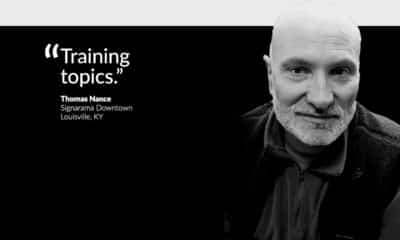By the time you read this, the 2014 Congressional midterm elections results will be known. Most pundits are predicting the Republican Party will gain Senate seats, possibly enough to wrest control away from Democrats, and securely hold the House of Representatives. Looking at the cyclical nature of politics, that wouldn’t be surprising. During midterm elections, the sitting President’s party usually takes a licking. The 1986 election’s with President Reagan in the Oval Office saw Republicans lose eight Senate seats, and thus control of the chamber; the 1994 election saw President Clinton’s Democrats lose a whopping 54 House seats as Newt Gingrich and other Republicans trumpeted the “Contract with America”, and, on Election Night 2006, George W. Bush begrudgingly acknowledged that Republicans had lost both the House and the Senate to Democrats. Yet, four years later, during President Obama’s first midterm elections, Republicans regained the House.
Although societal factors may influence someone’s vote, what’s the prime motivator? The economy, of course. Someone’s level of security (or lack thereof) with their employment or profitability prospects will be paramount.
Polls indicate a general level of discontent with the economy. Examples:
• The Gallup Economic Confidence Poll, which tracks respondents’ confidence with the economy’s direction against, registered October 26 readings of -8 and -11. The -8 indicates 23% of Americans who answered said the economy was “excellent” or “good”, and 31% said “poor”, whereas the -11 reflects 42% said the economy was getting better, while 53% said it was worsening.
• A CNN/ORC Intl. poll, conducted October 24-26, conveyed that only 38% of Americans who answered believed the economy was in good shape, a significant drop-off from 42% just the month before;
• An ABC News/Washington Post poll released October 28 indicated approximately 70% of respondents viewed the economy negatively. More pointedly, nearly 60% expressed little or no trust in the Federal government to reverse chronic economic malaise.
These are likely very apt indicators of the country’s economic mood. However, to dive a bit deeper into the current economic and social climate, I investigated findings from the Pew Research Center Global Attitudes Project, whose results were published October 9. I consider Pew surveys the gold standard of polling. The organization surveyed citizens of 44 countries – 10 “advanced” (the U.S., Germany, Japan, etc.), 25 “emerging” (China was a curious choice, given the sheer force of such a large, populous nation; Brazil, South Africa, and Ukraine are others on the list), and 9 “developing” (Kenya, El Salvador, Bangladesh, etc.) – were asked several questions related to various factors that dictated economic success, as well as attitudes about the future.
Here are several of its findings:
• Respondents in Advanced countries indicated far less confidence the next generation would be better off than its parents. Gleaned from a poll initially taken last spring, only 28% of those polled from nations designated Advanced predicted a better future for their children, while 65% foresaw a worse future. In Emerging markets, 50% predicted better for the next generation, and 25% envision worse (it’s unclear whether the other 25% reflects the same standard of living, or being unsure of what lies ahead) and 61% in Developing nations envision a better future for their offspring. U.S. respondents closely reflected the Advanced median, with 30% foreseeing a better future, and 65% worse.
• Indicative of American’s individualistic streak, only 40% of U.S. respondents agreed that an individual’s success in life was determined by forces outside their control. Among Advanced nations, South Koreans, at 74%, had the highest percentage. Vietnam (73%), Malaysia (63%) and China (58%) – all in the Emerging group — also had high percentages, which perhaps attests to modesty and collectivism being strongly embedded Asian cultural mores.
• Not surprisingly, among seven factors listed for being successful (three were rather cynical – coming from a wealthy family, being a male and giving bribes), Americans listed working hard as very important the most, at 73% of the time. Sixty-two percent said having a good education was essential; all other options lagged far behind in being listed as “very important”. Interestingly, only 18% of Chinese citizens who answered the poll cited working hard as very important, and only 27% said having a good education was vital.
• The question of whether higher or lower taxes would abate income inequality brought inconsistent answers among Advanced Nations. In the U.S., 49% said higher taxes would remedy the problem, whereas 38% advocated lower taxes. The remaining 13% said neither or both, or not sure. Germany, perceived as a nation prone to taking a harder line than most of Europe on taxes, had 61% of respondents advocate higher taxes, and only 31% calling for lower. In Italy, 68% asked for lower taxes, and only 12% higher. In Emerging markets, Brazil had the highest call for lower taxes (77%), and Jordan (57%) the highest percent asking for higher taxes. In developing countries, the data didn’t deviate far from 50% either way.
• The most consistent finding among the three types of markets was support for a free-market system. Given the statement :most people are better off in a free-market economy, even though some are rich and some are poor”, a median of 63% agreed in Advanced economies, while 30% disagreed; in Emerging markets, 62% agreed and 28% disagreed; in Developing countries, an average of 71% agreed and 24% disagreed.
What can we glean from this? If Americans believe working hard is the biggest key to success, why do we suffer from a collective sense of despair about the future?
Do we need to demand more, including more cooperation, from our so-called leaders? Do we need to work harder to create a culture that better supports education, research and development, and innovation? Do we need to emulate the resourcefulness and thrift of World War II-era Americans, who recycled and saved to fanatical degrees to support the Allied effort? Do we need to better manage the cultural trappings (I’m looking at you, social media) that create an artificial sense of connection, yet impede tangible engagement with our world?
The truth likely lies somewhere in the middle. And, while whom we elect to represent us at local, state and federal levels is important, we need to do our own heavy lifting to make this country the “shining light on the hill” many worldwide still consider us to be. Whether that be revamping business practices to better serve customers, becoming an active part of your local government, or finding ways to help the less fortunate in your community, consider the small part you can play to help make this country the best it can be.

 Paula Fargo2 weeks ago
Paula Fargo2 weeks ago
 Real Deal1 week ago
Real Deal1 week ago
 Photo Gallery2 weeks ago
Photo Gallery2 weeks ago
 Projects1 week ago
Projects1 week ago
 Business Management1 week ago
Business Management1 week ago
 News14 hours ago
News14 hours ago
 News1 week ago
News1 week ago
 Manager's To Do5 days ago
Manager's To Do5 days ago
















